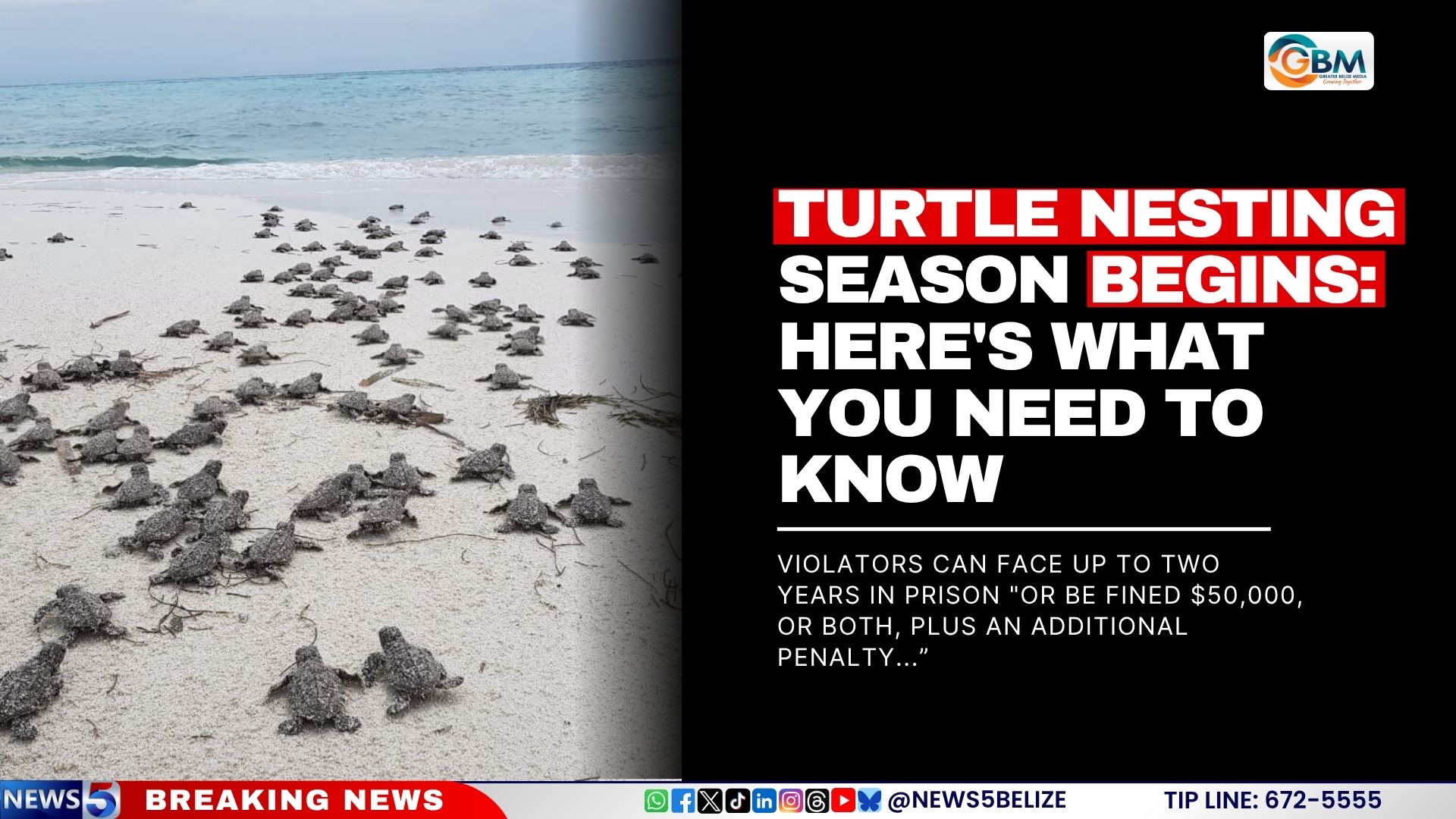Turtle mommas are back! Sea turtle nesting season has officially begun, and Belize’s sandy coastlines are once again the chosen birthplace for these ancient mariners.
From May through November, endangered sea turtles quietly come ashore at night to lay their eggs to continue a cycle that has played out for generations.
According to Belize Turtle Watch, three species are typically seen nesting in Belize: the Hawksbill, the Green Turtle and the Loggerhead. While green turtles mostly nest in the north, hawksbills prefer the south. Loggerheads can be spotted throughout the country’s shoreline.
The nesting process takes place every two to three years, and each turtle lays between 100 and 150 eggs in a teardrop-shaped nest dug with her flippers. After six to eight weeks, hatchlings begin their journey from sand to sea, though only about one in 1,000 will survive to adulthood.
Sightings have been recorded on beaches from Ambergris Caye to the Sapodilla Cayes, Turneffe, Lighthouse Reef, and Glover’s Reef. Belize Turtle Watch is encouraging residents, especially those living near the coast, to help protect these vulnerable creatures and ensure safe nesting grounds.
Protecting Sea Turtles: What You Need to Do
- Keep a safe distance from turtles, their nests, and hatchlings.
- Never touch or interfere with turtles, nests, or eggs.
- Turn off bright outdoor lights at night, especially near the beach.
- Keep pets away from nesting areas.
- Avoid loud noises or crowding near nesting turtles.
It is illegal to disturb or harm sea turtles under Belize’s Fisheries Resources Act. The law states, “No person may take, have in their possession, disturb, mutilate, sell, offer for sale, molest, transfer, harass, destroy, or cause to be destroyed any marine turtle, its nest, or eggs at any time.”
Violators can face up to two years in prison “or be fined $50,000, or both, plus an additional penalty of not less than $1,000 but may extend to $5,000 for each sea turtle, or part of a sea turtle, including its egg.”
Anyone who witnesses a violation, or spots a nesting turtle or hatchlings is encouraged to contact the Fisheries Department at 224-4552.
